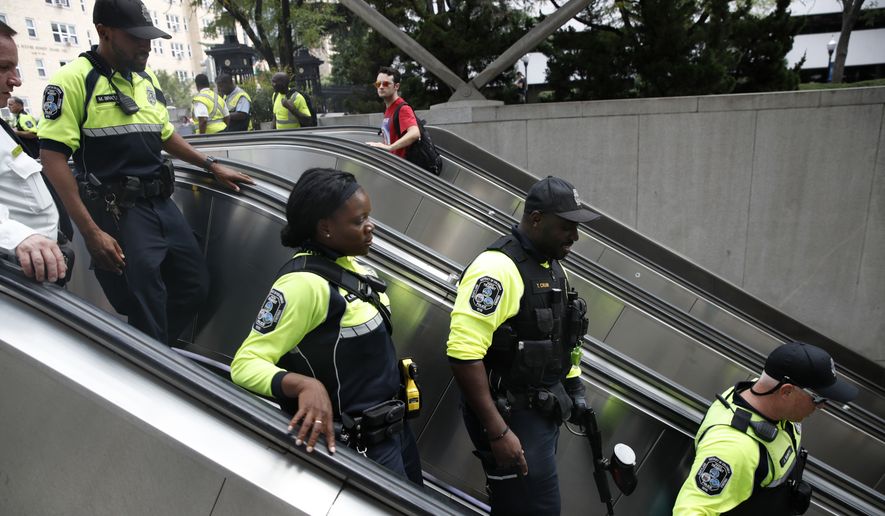D.C. Council members on Wednesday questioned Metro Transit Police Chief Ronald Pavlik Jr. about his department’s use-of-force policies after officers last week handcuffed a 13-year-old at a station and the agency confirmed that some officers had competed to see who could make the most arrests and issue the most citations.
Chief Pavlik acknowledged that the Metro Transit Police Department has long faced scrutiny and criticism over use-of-force incidents involving minors. Last week, officers were filmed handcuffing a crying 13-year-old boy who initially had been stopped for “horseplay” and later assaulted an officer, he noted.
The chief also noted that a group of officers at the Fort Totten Metro Station last summer had engaged in a competition that awarded points for citations and community engagement efforts. Chief Pavlik stressed that the contest lasted about a month and that officials immediately quashed the competition after becoming aware of it.
“The existence of a competition, unfortunately, only further undermines community trust in our Metro Transit Police,” said council member Robert White Jr., at-large Democrat and chairman of the Facilities and Procurement Committee.
Chief Pavlik said he thinks the police lieutenant who had organized the contest “was trying to think outside the box and be one of those kind of like millennial type thinkers and do something a little different.”
“I applaud her efforts, but the perception of it definitely created a bad one for the communities we serve,” the chief added.
Chief Pavlik said he conducted a four-day investigation and concluded the competition was limited to a division of the District 1 precinct, which actually saw a decrease in arrests from 2018 to 2019.
Council member Charles Allen posited that the low numbers could have been what inspired the creation of the game in the first place.
“I don’t mind entrepreneurial thinking, but I do mind if that entrepreneurial thinking is, ‘How do I arrest more people?’ Because that’s the piece that does the damage,” the Ward 6 Democrat said. “When we incentivize the act of the arrest, it’s different than incentivizing health and safety in other ways.”
Former transit police officers testified at the hearing that the department requires officers to fulfill a quota for arrests and citations at the end of each shift and quarterly.
Tiffany Washington, who was terminated from the department after 18 years of service, said that many of her former coworkers were afraid to testify out of fear of retaliation.
She told The Washington Times that officers had told her that if they don’t turn in paperwork for a citation or arrest to their supervisor at the end of a shift, they are put on a “nasty list.”
“Quota system is not effective,” Ms. Washington said. “There are items we do as police officers that account for a lot of your daily duties whether it is making our citizen contacts, performing community service, community outreach or helping someone with directions.”
When questioned about the quota system, Chief Pavlik said the department is moving away from evaluating officers on that metric.
Mr. White said he and Mr. Allen are introducing a sense of the council resolution to call for the establishment of a civilian complaint board to review use-of-force complaints against Metro Transit Police officers. Chief Pavlik said his agency already has plans for such a review board.
• Sophie Kaplan can be reached at skaplan@washingtontimes.com.




Please read our comment policy before commenting.